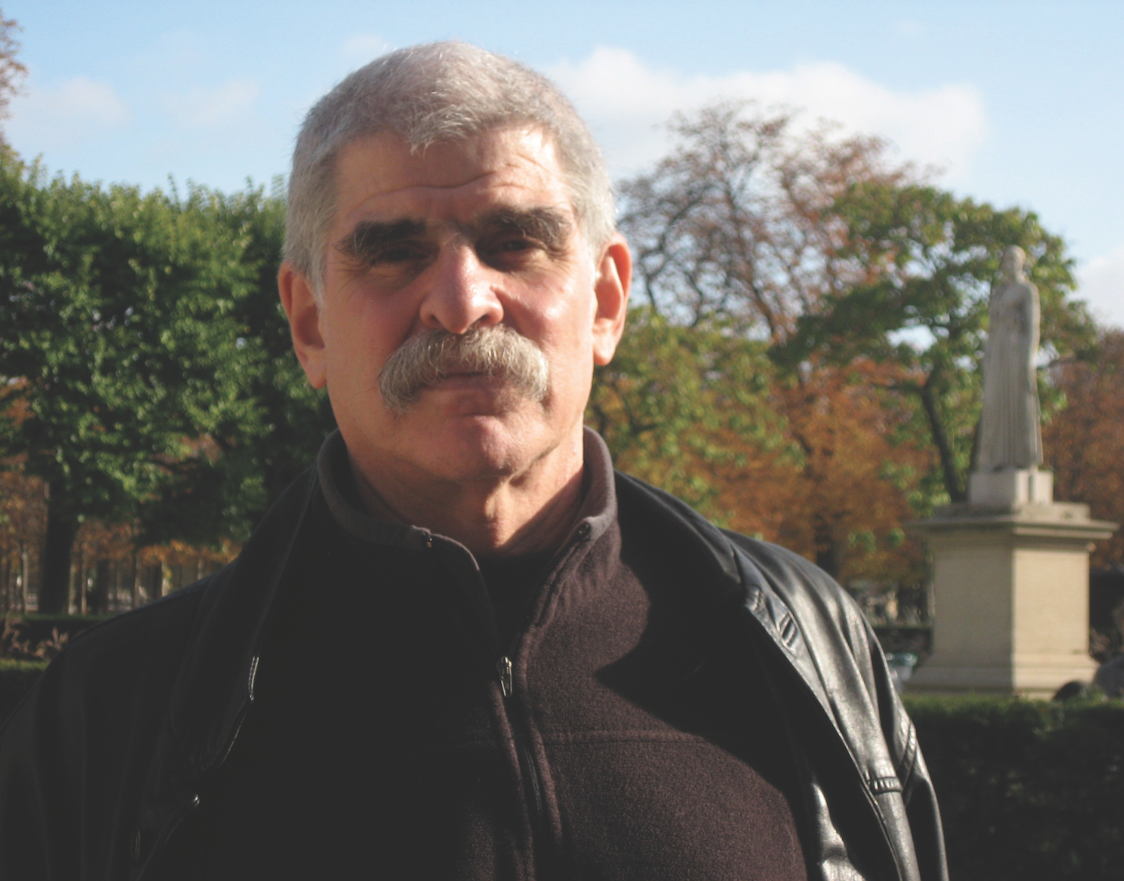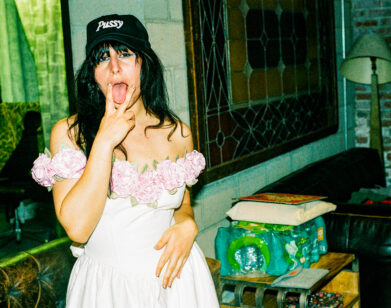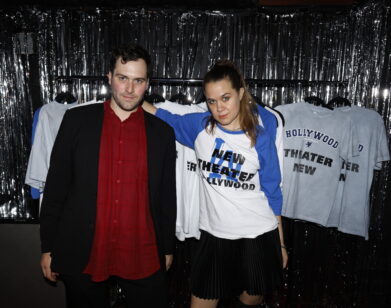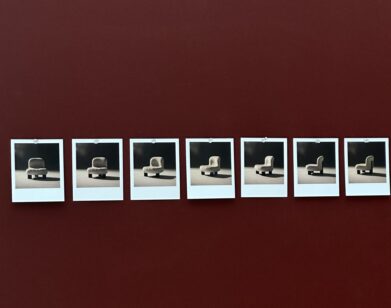Francis Levy, Exposed

FRANCIS LEVY. PHOTO COURTESY OF HALLIE COHEN
Everyone sheds their clothes in the summer. In Francis Levy’s novel Seven Days In Rio (Two Dollar Radio), Rio de Janeiro plays host to a sex tourist waylaid at a psychoanalytic conference in the tropical city of sin. Levy, a native New Yorker who has never been to Brazil, uses the country as a surrealist, sensual stage on which to play out the fantasies of his narrator, Teddy Cantor. Hooked on sex with prostitutes, Cantor attempts to find the perfect prostitute with which to indulge his desires. Yet, his neurosis and crippling anxiety about his own animal urges keep getting in the way. Levy delivers a visceral blend of hilarious satire and study in human sexuality, taking us on a deviant tour of Rio. The wild ride includes stunning sex workers with multiple prostheses, lush tropical estates, hotel concierges turned pimps, and scantily-clad female therapists. We talked with Levy about his own (sometimes sordid) sexual past, how Rio represents his inner mindscape, the sexual nature of analysis, Freud, and if psychology makes perverts of us all.
FRANCIS LEVY: Can I anticipate the question you’re going to ask me?
ROYAL YOUNG: Sure, go for it.
LEVY: Are you going to ask, does the book have to do with me? Is it autobiographical?
YOUNG: No, I wasn’t.
LEVY: [laughs] I’m not trying to be facetious. It’s just that I did live part of my life, back in the ’70s, as a sex tourist. I rolled around New York, getting fucked up. I was drinking all the time and a denizen of the Mudd Club. I was one of the only people who’s ever been 86’d from the Mudd Club. That took work.
YOUNG: [laughs] What did you do?
LEVY: Well, one of the reasons I had to stop this kind of life, was because I hated myself and was always trying to escape it. It took drugs, alcohol, and unlimited sex with prostitutes in the search for ultimate ecstasy, which really hid my death wish.
YOUNG: So what attracted you to Rio as the place to set your novel?
LEVY: It’s an imaginary world, like Franz Kafka’s Amerika, where Kafka had never actually been to America. I mean, Brazil obviously connotes something in my mind to do with desire, sexuality and freedom. In fantasy, in mythology, Rio is the iconography of the imagination. In essence, we’re all sex tourists. I’ve never been to Rio and I’ve never been to a psychoanalytic convention, but in a sense, Rio is symbolic of desire, some sort of ultimate ecstasy.
YOUNG: Could you go deeper into that?
LEVY: Well, if we’re not conscious of sex, than we don’t know we’re having the pleasure. There’s a compromise. By virtue of being human, there’s self-reflection. Freud should replace the Gideon Bible in motel rooms.
YOUNG: So you’re saying that it’s an internal struggle between desire and reality?
LEVY: Right, it’s being torn between desire and that thing we call conscience. I’m afraid to go to Rio. Imagination is always greater than reality, and the reality of a sex paradise is that they offer a supposed escape from the nightmare of repressive society.
YOUNG: Well, I think the reality is that these Rios become a nightmare themselves.
LEVY: I think they become a nightmare of striving.
YOUNG: What do you see as the connection between analysis and sex?
LEVY: I was in analysis for many years, and one of the things analysis does is open up forbidden territories. It opens up those unconscious, instinctual urges that you then have to deal with. I’m like a Frankenstein of analysis. I’m able to go back and forth between the world I’ve created inside of myself and the real world, which is something I think a lot of people who write and paint and make art do.
YOUNG: What’s the difference between paying for analysis and paying for sex?
LEVY: Similar. I used to go into my analytic session and just dump and say, “I’m paying you, so I can do anything.” I’m a little bit of an excitement junkie.
YOUNG: How does that excitement take you out of yourself?
LEVY: I haven’t had a drink for 24 and a half years, so I don’t live the kind of life anymore where I literally take mind altering substances, or do things in which I am able to forgo reality. I have the potential to be an enormously repressed individual in the guise of a freewheeling spirit.
YOUNG: Do you think to some degree everyone is repressed?
LEVY: Yes, by definition. I don’t want to be critical or judgmental, it’s just the human predicament. I run around town telling all sorts of things about myself and my wife often says, “Why did you do it?”
YOUNG: Why do you have to talk or write about it? Or why did you do these things?
LEVY: Why do I have to do these emotional stripteases? I have been very honest about the difficulties of sexuality and my own sexuality. I mean, I don’t know what the hell I am. I’m not a classic heterosexual, but I’m married, I’m completely faithful to my wife, but I’m a mixed up mess. I’ve never found sex easy, I’m full of desire, I want to fuck everything in town. So like the character in my novel, the route from my fantasy life to reality is a very torturous one. And I think men are still very loath to talk about their sexuality. Yet, I am so ashamed about my imperfection as a human being that I tell everything.
YOUNG: I do think the confession in and of itself is a thrilling act.
LEVY: Yes, and all writers are autobiographical to a degree and writing about the nature of their inner life. My inner life has always been a struggle between my conception of myself and the world versus reality.
YOUNG: I think everyone can relate to that struggle. To what degree do you think everyone is a giant pervert?
LEVY: One of the things that was very upsetting to people when Freud came out was his notion of childhood sexuality. It’s really an appalling notion, that children desire their parents, that a young child in the Oedipal stage could really want to do what Oedipus did, which was to murder his father and sleep with his mother. I wanted to fuck my mother, but I also wanted to be her, which is a whole different problem. It was a Norman Bates situation. I guess we’re all perverts and murderers subconsciously.
YOUNG: Well, I think it’s about maintaining a healthy fantasy life, without acting on those things and putting yourself in danger.
LEVY: Right, that’s exactly it. I am not for any form of repression, but I sometimes think the desire for liberation masks the desire for oblivion. It’s very hard to tell the difference sometimes.
YOUNG: How do we as human beings reconcile all this, if we’re all perverts who want to subconsciously have sex with or murder our parents?
LEVY: Can we come to the point where we can accept the impossible strivings that we have, the utter inability to ever fulfill our narcissistic megalomania, and then go on to live our lives and accept our disturbing thoughts? We need to accept our vulnerabilities and have love for our imperfections. If you can want what you have, I think you’re on your way.
SEVEN DAYS IN RIO WILL BE IN BOOKSTORES AUGUST 16.






